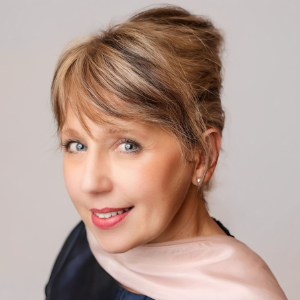Skin ageing refers to a set of typical conditions and changes that occur as people age. One of the most noticeable indications of ageing is changes in the skin. The skin is affected by the ageing process in a variety of ways. The epidermis thins and the rate of turnover slows significantly. Wrinkles and drooping skin are signs of growing older. Another noticeable indicator of ageing is hair whitening or greying. Environmental conditions, genetic composition, nutrition, and other factors all influence skin changes. Even though the number of cell layers remains constant, the outer skin layer (epidermis) thins with age. Melanocytes (pigment-containing cells) decrease in number. The size of the remaining melanocytes increases. Skin that is getting older seems thinner, paler, and clearer (translucent). Despite the fact that ageing skin loses a lot of function, most anti-aging treatments focus on eradicating or correcting the undesirable outward indications of ageing. As the population ages, the focus on ageing skin care must move from aesthetic concerns to how structural and functional loss affects quality of life.
- Changes in Skin Appearance
- Pathobiology of Ageing Skin
- Environmental Stressors on Skin Aging
- Premature Aging
- Mechanisms of Ageing and Development
- Anti-Ageing
- Effect of Ageing Skin on Quality of Life

Ravi M Rathod
KMCRI, India
Dechelette Corinne
La Peau Autrement, France
Irina Sergeeva
Novosibirsk State University, Russian Federation
George Sulamanidze
Plastic Surgeon at Clinic of Plastic and Aesthetic Surgery and Cosmetology TOTALCharm, Georgia
Nino Tsamalaidze
Ltd Karabadini+, Georgia
Lina Petrossian
California University of Science and Medicine, United States
Surajbala Khuraijam
Manipur Health Services, India
Shrutimita Pokhariyal
Symbio, India
Yasser Mohammed Hassanain Elsayed
Egyptian Ministry of Health, Egypt



Title : Paraneoplastic Autoimmune Multiorgan Syndrome or PAMS: Paraneoplastic pemphigus revisited
Sergei A Grando, University of California Irvine, United States
Title : Modern non-invasive methods for in vivo assessment of skin
Georgios N Stamatas, SGS, France
Title : Personalized and precision dermatology through the view of biodesign-inspired translational & data-driven applications: Revolutionary skin treatments for every concern in clinical dermatology integrating skin care experts and consumers
Sergey Suchkov, N.D. Zelinskii Institute for Organic Chemistry of the Russian Academy of Sciences, Russian Federation
Title : The next generation of threads: Lifting, volumization, and biostimulation in one powerful triple action
George Sulamanidze, Plastic Surgeon at Clinic of Plastic and Aesthetic Surgery and Cosmetology TOTALCharm, Georgia
Title : Lymphoproliferative diseases in the practice of a dermatologist
Irina Sergeeva, Novosibirsk State University, Russian Federation
Title : Art, skin, and dermatology: Interdisciplinary perspectives
Dechelette Corinne, La Peau Autrement, France
Title : Comparative efficacy of omalizumab and dupilumab in children with Chronic Spontaneous Urticaria (CSU): A retrospective cohort analysis
Molynna Nguyen, University of Toledo, United States
Title : "Mirror mirror on the skin” — A low-cost community strategy to reduce melanoma disparities in Washington, D.C.
Kayla Sampson, Georgetown University School of Medicine, United States
Title : Vitiligo: Not just an aesthetic disorder
Mateja Starbek Zorko, University Medical centre Ljubljana, Slovenia
Title : Personalized and Precision Medicine as a unique avenue to have the healthcare model renewed to secure the national biosafety: Advanced skincare solutions in individualized cosmetology, reconstructive plastic surgery and the modern beauty
Sergey Suchkov, N.D. Zelinskii Institute for Organic Chemistry of the Russian Academy of Sciences, Russian Federation